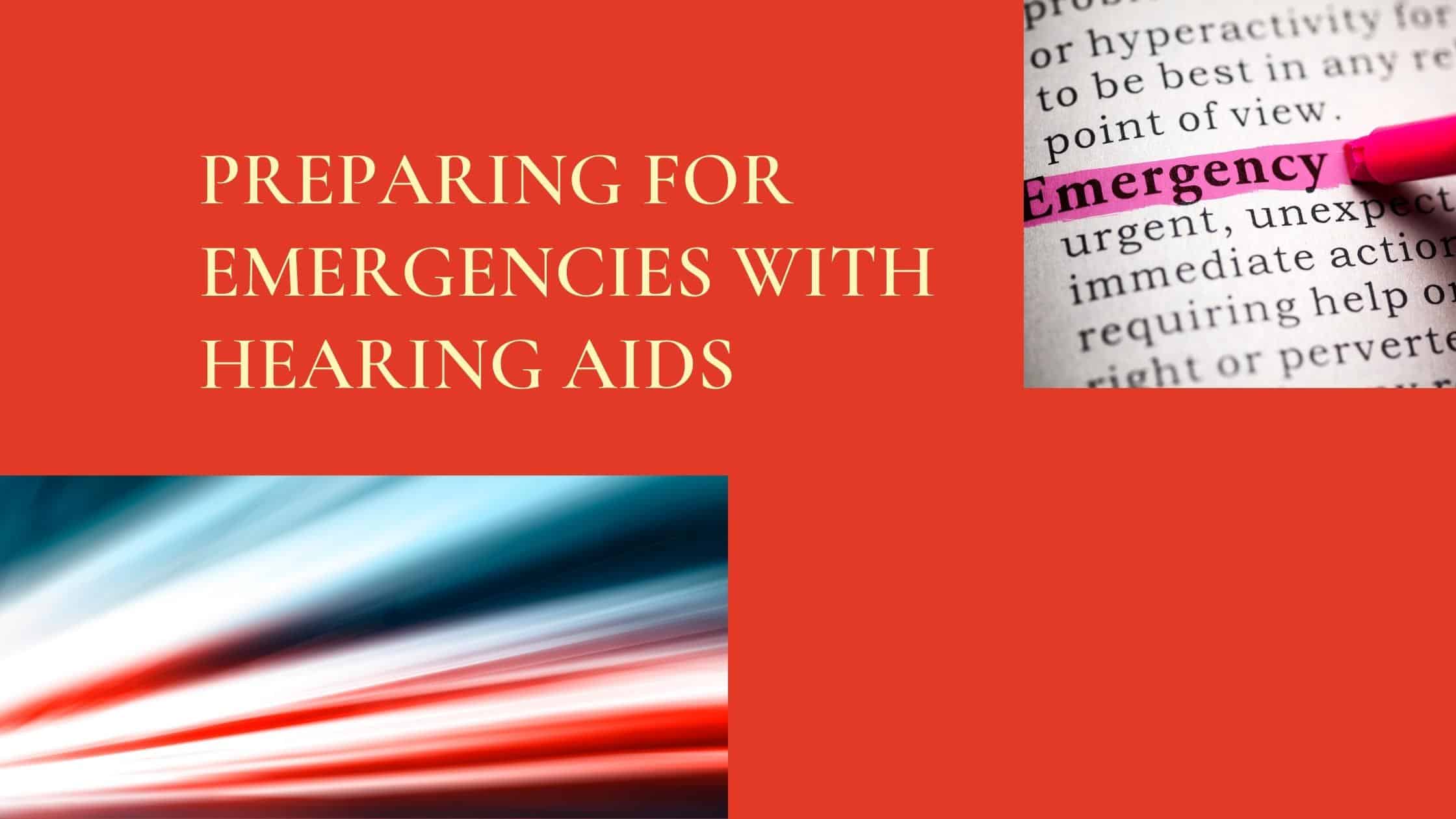
When an emergency hits, you need to have all the best resources available. A little preparedness goes a long way toward making you ready to face whatever dangers might arise. Some people take emergency preparedness very seriously, stockpiling resources and developing detailed plans for every possibility. Even if you aren’t so well-prepared, you can take some simple steps to set yourself up for success in the event of a weather emergency or natural disaster.
Those who have physical limitations need to pay special attention to their individual needs in these situations. For instance, those with hearing loss will need to take extra steps to make sure they can receive information and communicate their needs when the time comes. Let’s walk through a few of the emergency preparedness strategies you can take, emphasizing communication needs facing those with hearing loss.
Make a Plan
If you know that your area is prone to a certain type of natural disaster or weather event, make a plan for what to do in the event of an emergency. In addition to transportation decisions, your plan should include steps you will take to establish and maintain lines of communication. If phone lines are down or cell towers are out of service, you will need ways to communicate with loved ones and emergency personnel. Don’t hesitate to enlist advice from others when you are developing your plan. They might see missing pieces that you hadn’t imagined, making you better prepared if the event occurs.
Focus on Power
Perhaps the most important element of an emergency preparedness plan is to secure adequate power for your needs. If power lines are down, you will quickly find the rechargeable batteries in smartphones, computers, and hearing aids depleting. These devices are a lifeline in emergency events, so you might want to invest in a power generator if you know that your area is prone to outages. Even if you don’t go all the way to a generator, keeping some solar chargeable battery cells can provide enough power to keep your phone in service, making it possible to communicate with emergency personnel. If your hearing aids have replaceable batteries rather than rechargeable ones, keep enough batteries on hand to last you through an emergency event like this. Your ability to communicate with others will be crucial to planning and strategizing.
Assistive Technology
In addition to keeping your hearing aids powered up, there are assistive devices available to those with hearing loss, impairment, and total deafness. Alarms are some of the most important elements of the emergency readiness process, and those with a serious hearing impairment might not be able to hear them without additional notification. You can download apps for your smartphone that buzz when an emergency event occurs, and alarms can be installed on your walls that include bright flashing lights in addition to loud sirens. Emergency radios are available that provide a visual reading in addition to audio reports on emergency conditions, and this visual element can help you fill in the gaps if you struggle to make out what officials are saying on the radio or television. Consult with your hearing healthcare provider or the Hearing Health Foundation, a non-profit advocacy group that works to connect those who are hearing impaired with the resources they need.
Getting Treatment
If you don’t have treatment for your hearing loss, the most important step you can take in an emergency event is to get the assistance you need. If a natural disaster or weather emergency occurs, you will need to support your communication ability, and hearing aids are among the best ways to help you talk with officials, emergency personnel, and loved ones. The first step is to get a hearing test to diagnose the severity of your condition and the right type of assistance for your individual needs.
Don’t put off getting the test any longer. If an emergency occurs, you will not want to be caught without communication support. After you have a thorough diagnostic exam, you will have the information you need to get hearing aids or other assistive technology in place. That technology can make an enormous difference in your everyday life, but it can make a life-saving one in the event of an emergency.
